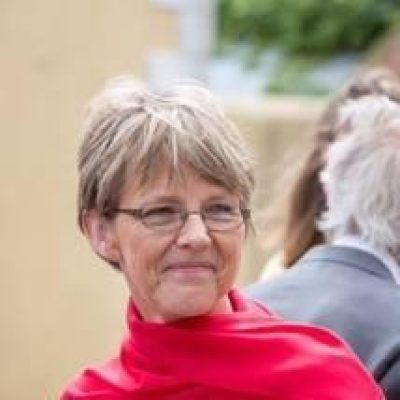Jamie is a young man who has complex needs and, with his family, has always sat on the back row at church, “in case his constant movement disturbs people.” Very few people have ever approached Jamie and his family, probably in part because they sit at the back, but also because they aren’t sure how to interact with him.
Jamie’s story reminds us of the need to build fresh perspectives on faith and intellectual disabilities, something which we at Tio Associates are working together to build, through teaching, training and consultancy.
Did you know that this week is officially Learning Disability Awareness Week 2024? This year’s themes are: “Do you see me?” and “being seen, heard and valued.” We believe these themes are deeply important and useful to consider and apply in Christian settings all year round, but also that we need to go further than affirming value – we can deeply honour people with learning disabilities.
Seen
We recently worked with Jamie’s church to create an Accessible Worship Service, where Jamie led us in prayer and showed us how to use Makaton in our praise. Later, church members came to tell Jamie how much they appreciated his contribution – many were speaking to him for the very first time. Although Jamie didn’t speak back, his parents shared: “At last Jamie has been seen. We’re not going to sit on the back row anymore. This is Jamie’s church. He belongs here, just like everyone else.”
Heard
At one of Tio’s recent conferences, we ran a session on Pastoral Care for Families Living with Learning Disability, led by a member of our team who, as well as being a disability theologian, is a mother of a beautiful adult daughter who has profound learning disabilities. She described the joys and challenges of raising a child who has complex needs, and her family’s often less-than-positive experience of church over many years. In a blend of biblical reflection and personal experience, she explored how Christian communities can transform this reality and be the body that perfectly fits with our head, Christ, to bring love, support and affirmation into the lives of these families. At the end, a member of our team was approached by a woman whose sister, who had severe learning disabilities, had recently died. “Finally,” she said, “after all this time and my beautiful sister’s death, for the first time in 40 years, I feel that our family’s story has been heard.”
"In our kingdom communities, we must do more than affirm the value of those whom society disregards and devalues; we must affirm their indispensability, and, in a community of equality, we must find ways to honour them above all the rest."
Valued
People with intellectual disabilities inhabit a societal narrative that all too often undermines their value and leaves them marginalised and even unsafe. A paper in the BMJ’ S Journal of Medical Ethics presented research commissioned by the government in 2022 and carried out by Oxford University. It’s entitled: “Worth living or worth dying? The views of the general public about allowing disabled children to die.” It showed that assumptions were being made by the general public about what constitutes a meaningful life and whose lives deserve to be valued on the basis of those assumptions. For example, in the survey of 130 participants, 94% “agreed that an infant’s life may have no benefit when well-being falls below a critical level.” It’s typical of a society that prioritises power, autonomy and self-sufficiency.
The narrative of God’s kingdom couldn’t be more different. Kingdom values find expression in humility, simplicity, the acceptance of weakness – my own, as well as others’. And they take shape in communities of love and justice, diversity and service. These communities are safe for people with learning disabilities. But more than that, they are places of flourishing, of belonging, of participating and contributing to the community’s health and growth. At least they should be. Recent research revealed that 84% of children with learning disabilities are less likely to attend church than their peers. 46% of families living with a learning disability have never been asked by a faith leader about how to include their child. One in three families changed places of worship or stopped attending church altogether because they felt their child was excluded. And this gets worse as children move into adulthood.
In his description of the church, the body of Christ, in 1 Corinthians 12:22 – 25, Paul writes:
“Those parts of the body that seem to be weaker are indispensable, and the parts that we think are less honourable we treat with special honour… God has put the body together, giving greater honour to the parts that lacked it, so that there should be no division in the body, but that its parts should have equal concern for each other.”
In our kingdom communities, we must do more than affirm the value of those whom society disregards and devalues; we must affirm their indispensability, and, in a community of equality, we must find ways to honour them above all the rest. We must see and be attentive to these families. We must hear their stories, listening for what they bring and the support they need. We need to value the lives and the presence of people with learning disabilities, building friendships that demolish isolation and loneliness, becoming the answers to prayers like Ricky’s, who, at 26, has been asking God every night for 10 years for a friend.
If you would like to find out more about the ministry of Tio, you’ll find us at tioassociates.org or email us at hello@tioassociates.org
Related pages:

Bravery in diversity
Dr Jill Harshaw shows us the importance of honouring people whom the world often disrespects and undervalues Read more



